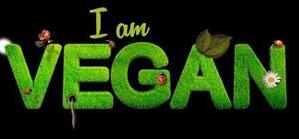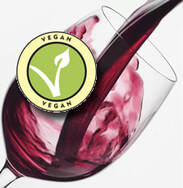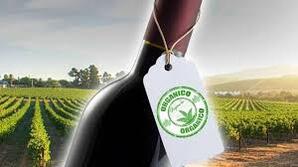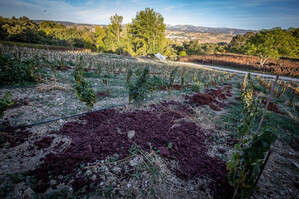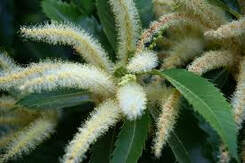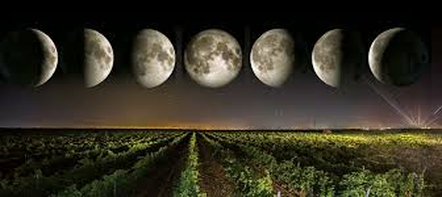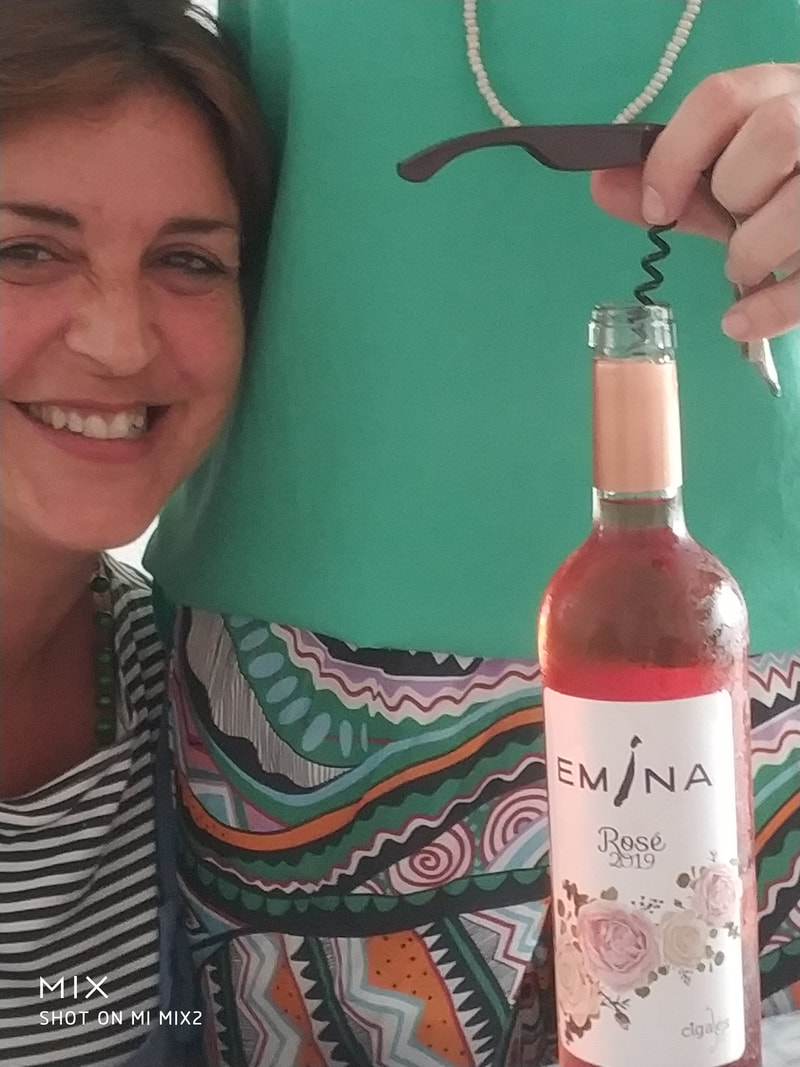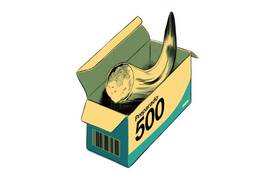 When a winery indicates that its wines are suitable for vegans it means that any animal derivative has been excluded from the manufacturing process, those that, since ancient times, have been used to clarify the wine, to eliminate solid waste that detract from transparency , which show them cloudy, and and that drinkers do not like, neither in sight, nor on the palate. Eradicate contamination in the wine sector. The law in Europe does not require that all wines exceeding 10mg / l should indicate on the label that they contain sulphites only for the sake of reporting, but that it is also necessary because a small percentage of the population is sensitive or allergic to sulphites. In general, organic and biodynamic wines contain sulphites for their conservation and evolution, although much less than conventional wines. The world of oenology is increasingly oriented towards the creation of biodynamic wines, replacing traditional artificial additives with others of natural origin, such as chestnut flower. Ozone in the wine industry can also make a great use. Throughout the winemaking process, from the care of the same vineyard to the washing of grapes, equipment and facilities. And also using only vineyard pruning wood, they can substitute sulphur dioxide in winemaking and preservation.. Definitions and curiosities about this wine classification : NATURAL WINES : The grapes to produce these wines are fermented without any intervention, only with indigenous yeasts (natural from the grape). The addition of sulphurous anhydride, or correction of acidity, sugar or clarification through the use of adjuvants is not allowed. Like biodynamic wines, they are also governed by a lunar, solar and astrological calendar. The wines called natural and I say called, since there is no legislation that sets standards in this regard, it is understood that they are those wines that have not used SO2 in their elaboration process and are exempt from this added product; since they can have a small amount of the sulphur treatments carried out in the field or that are naturally in the environment of the vineyards. In addition, in the wine labeling it is mandatory to announce that it "contains sulphites" if the amount is greater than or equal to 10mg / L. It is understood that if the amount is smaller, the label will not say anything about it, which does not mean that it does not contain it. These wines are usually wines without aging in the barrel, since not being protected against oxidation, the fact of being in the barrel would provide them with a significant increase in Volatile Acidity through the excessive proliferation in the barrel wine of the acetic bacteria Therefore, these wines have clear time limitations and are usually short and bottled wines. WINES WITHOUT ADDED SULPHITES: Sulphurous Anhydride or Sulfur Dioxide, is a chemical preservative that is added to many foods and beverages for maintenance. You can find it with other names such as: "sulphites", "SO2", or the famous "E220 to E228"; but they all refer to the same. In agriculture, sulfur has been used since ancient times to protect plants against fungi. In the cellar, sulphites are used primarily to disinfect. The sulphites can be added to the wine directly by adding sulphur to the vats or barrels. In Oenology: the application of sulphurous in oenology is limited to antimicrobial uses, acting against microbes such as molds, bacteria and negative yeasts; and to antioxidant uses, acting against oxidases that are enzymes that go in the grapes and that can deteriorate both the color and the taste of the wine. Organic wines can carry up to 75mg / L of SO2, it is more than enough for proper preservation if the grapes that were put in the cellar were of quality and had a correct sanitary status; as would correspond to an organic grape of authentic quality. In conclusion, unless you have an allergy or sensitivity to sulphur, you should not worry about a wine that "contains sulphites", rather we should worry about a wine that does not contain them. VEGAN WINES: The wines suitable for Vegans (Vegan-friendly wines) are those in which no materials of animal origin are used during clarification, but in addition, most vegan wines tend to come from organic vineyards, that is, from vines that have not been treated with fertilizer or artificial chemical pesticides. Currently there is no specific legislation in Spain that indicates the requirements that a vegan wine must meet to be certified as such. What vegan winemakers try to do is certify their bottles by independent agencies such as the Spanish Vegetarian Union, which certifies with a European v-lebel seal. These seals only certify that during the winemaking process, neither parts of animals nor their derivatives have been used. The only regulation, common to all wines, is the one that requires to indicate on the label that the wine contains sulphites if the amount is greater than 10mg / L. Many of the vegan wine producers choose not to add more sulphites to their broths to avoid losing qualities. It must be taken into account that during the fermentation of the wine, sulphurous substances is produced naturally and in small quantities, the so-called endogenous sulphites. There are producers who believe that no more sulphites should be added for the preservation of the wine, giving rise to the so-called "sulphite-free wines". ORGANIC WINES: They lack aggressive and invasive practices from the vineyard, in which herbicides, pesticides and fertilizers or any industrial toxic product are prohibited. Only supplies for disease prevention are used and these must be allowed by the certifiers, which are the ones that determine if the requirements necessary to qualify as a final organic product are met. Definitions and curiosities about this wine classification : BIODYNAMIC WINES: The origin of these wines is found in the Anthroposophy of Rudolf Steiner, a science that combines medicine, homeopathy and astrology. It is essential that, for a wine or vineyard to be biodynamic, it is first governed by organic practices. Therefore, the use of pesticides or any other chemical element in the vines is not allowed. The work of harvest, cellar and even tastings, are guided through a lunar and astrological calendar. The worldwide certification that governs these wines is called Demeter. Steiner prescribed nine different biodynamic preparations to help fertilization. They are the cornerstone of biodynamic agriculture and he described them exactly how they should be prepared: - cowhorn filled with ground milled quartz. It is buried in spring and taken out in autumn. It can be mixed (mixing a tablespoon of quartz powder in 250 liters of water). The mixture is sprayed at low pressure on the crop during the rainy season, to prevent fungal diseases. It should be sprayed on a cloudy day or first thing in the morning to prevent the leaves from burning.
2 Comentarios
Irene Sayas
9/9/2023 02:33:34
Thanks for read me and coment...💌
Responder
Deja una respuesta. |
irene sayasEntusiasta y conocedora de la magia del vino. El vino evoca, convoca y provoca... *Archivos:
|
Cómo contactarnos / How to contact usTeléfono 690 073 871 |
Suscribirse / SubscribeÚnete a nuestra lista de correo hoy!
Sign up to our mailing list now! |

